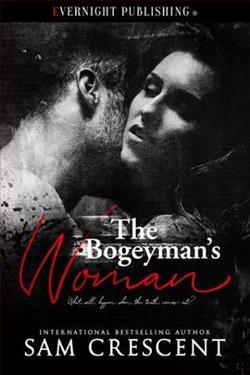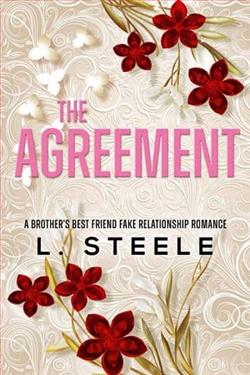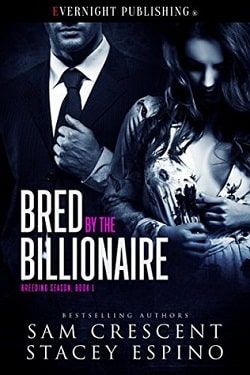Page 44 of What Happened to Lucy Vale
Lucy Vale came back changed the next day. For a month, she’d been notching up Woodward’s social strata. But after the Vales’ yard got ripped up by the would-be justice league, she made a final, dramatic leap into the spotlight.
There was no doubt about it: Lucy Vale was a secret badass, and the most desirable girl in high school.
We were delirious with curiosity. We attacked her with questions. Was it true that she’d threatened the trespassers with a tire iron? Was it true that her mother eventually invited them in for a tour? Was it true they’d turned up a buried time capsule in the yard?
The answers were, in reverse order: no, yes, and kind of. It wasn’t a tire iron but a bicycle pump, and she hadn’t threatened them with it. She’d grabbed it from the closet without thinking as soon as she and her mother had realized what was going on in their yard. While her mother called the police, Lucy Vale catapulted out of the house brandishing a six-dollar plastic air pump and a cell phone. She hadn’t realized it wasn’t recording until after the police had arrived.
By then a small flock of neighbors were drawn over by the commotion, which at one point devolved into an argument about Indiana’s recycling practices. Lucy Vale’s neighbor Mrs. Gorsuch stalked over in asilk nightgown and a pair of waders with a rifle crooked over one shoulder. The cops arrived and managed to defuse the tension. Unbelievably, Lucy’s mom eventually offered up a tour of the house. Afterward they’d joked with the cops about selling tickets to pay the rent.
In the end, the Vales decided not to press charges. Lucy told a few of us at lunch that she actually liked the podcasters and was considering an invitation to be interviewed for their show,Blood in the Water. They’d recorded a two-part series on the Faraday case earlier in the spring. Apparently the Faraday episodes had been so popular that the producers decided to devote their entire next season to Nina’s disappearance and her mother’s subsequent suicide.
We tried to listen. But most of us jumped ship early. Hearing them dissect Nina’s disappearance, and then her mother’s death, was too weird. We didn’t like one of our stories voiced by a stranger. It was like a voice from a dream speaking suddenly from behind you. Personal and weirdly violating. Like the internet had taken a shovel to our subconsciouses.
Funnily enough, we’d never actually googled the Faraday case. There was no reason to search the details because it wasn’t that kind of mystery. At least, it wasn’t for us.
But after the crime-hunting podcasters broke onto the Vales’ property, we found out that Nina Faraday’s case had grown increasingly famous online thanks to the continued agitation of an estranged aunt, Ellen Faraday, whom we’d never heard of. Ellen Faraday was convinced that Nina was murdered at home by Tommy Swift and that the rest of it—the cell phone data proving she’d been out near the state park at 8:00 p.m., the missing gym bag from her closet, the fact that there was no proof she’d been murdered at all—was a blind.
Ellen Faraday was persuaded most mysteries weren’t actually very mysterious at all; no one liked to dig up dirt when it was close to home.
Jackson Skye joked that, in a way, it was too bad that Nina’s bones hadn’t turned up. It would have implicated Lydia Faraday and provedthat Nina’s ex, and the rest of the swim team, had been telling the truth all along.
@kash_money:not necessarily
@kash_money:Some people think that Tommy followed Nina home from Aquatics
@kash_money:And killed her before Lydia got back from work
@bassicrhythm:Tommy was with the rest of the team at Coach Steeler’s
@bassicrhythm:The pizza guy confirmed it
@bassicrhythm:That’s like a twenty-five-minute drive from Nina’s house
@kash_money:I’m not saying I agree with it
@kash_money:don’t shoot the messageboard
Lucy Vale told us about the Discord serverStill Seeking, which had more than five hundred thousand subscribers and had pinned Nina Faraday’s profile under its featured cases.
We found the server. None of us wanted to subscribe.
A few of us went down the rabbit hole, though. There were always a few of us going down the rabbit hole, jumping ship, jumping the shark, stanning ships; sending memes or spawning jokes. That’s how it was with us: spirals, spam, streaming a whole season of a show we’d already seen three times when we were supposed to be doing our homework. We learned that there had been supposed sightings of Nina everywhere from Santa Fe, New Mexico, to Bangor, Maine, but that all of the leads had been busts. We stared at a creepy photograph digitally aged to resemble Nina sixteen years after her disappearance, as if it might tell us something about what had happened to her a decade and a half earlier. Will Friske declared a personal crusade to solve the mystery of Nina Faraday’s disappearance once and for all because he’d been victimized by the interest around the case. Akash was similarly inspired becauseLucy had been victimized; and plenty of us revived our interest in the case because Lucy Vale was interested.
The question was: Why?
Lucy’s explanation about why her mother had wanted the house was unconvincing and quintessentially vague; her mom was a true crime fanatic, she’d told us, as if that made sense of it. A lot of us were into true crime, but that didn’t mean we wanted to take a shower in the middle of a cold case.
Peyton Neely straight-up asked Lucy in homeroom if she believed in ghosts, figuring that she would say no. But apparently Lucy had to think about it. Finally she said she definitely believed in energy. They’d once lived in a house where there was some kind of dark energy, for sure. They’d moved after only a year, when Lucy started having nightmares.
But Lucy Vale claimed the energy in the Faraday House wasn’t like that. If anything, she told Peyton Neely, it felt heavy, a little sad. Abandoned.
Besides,she added,it’s never the dead ones you have to worry about.
Peyton didn’t know what she meant by that, and neither did we.
Knowing that the Vales had consciously chosen to live inside the Faraday mystery changed everything. Overnight, Lucy Vale and her mother fell through the veiled mysteries of that inscrutable house and returned sheened with its glamor. Suddenly Lucy came bearing secrets, middle-of-the-night dramas, and a high tolerance for ghosts. If at first she’d been Other, the blank space for our imaginations, in October Lucy Vale became Object, a source of endless fascination, a riddle of contradictions, both an encryption and the key to unlocking it. At the heart was a question of not just who she was but what thatmeantand how to make sense of it. Suddenly the baggy sweatshirts, the Converses that rotated with her moods—it all seemed like camouflage, like a deliberate attempt to mislead us. The scrunchies she layered on her wrist, on the other hand, might be significant.
Now she was more than a mystery. She was a riddle. In need of a secret code.















